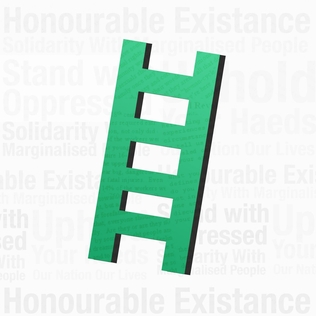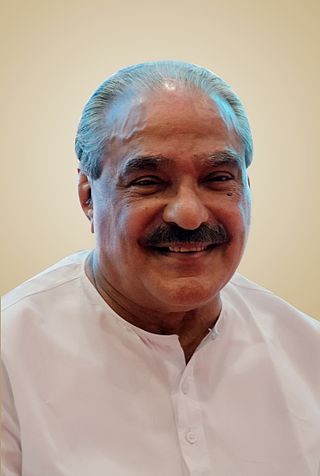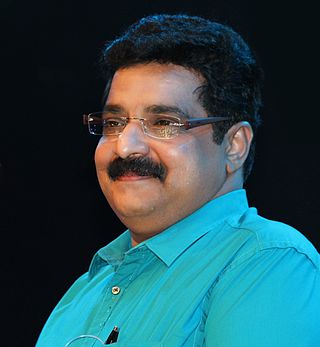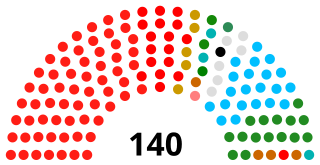
Kannoth Karunakaran was an Indian politician who served as the chief minister of Kerala in 1977, from 1981 to March 1982, from May 1982 to 1987 and from 1991 to 1995. He is the founder of the Indian National Congress (INC)-led United Democratic Front (UDF) coalition, which governed the state in the periods of 1982-87, 1991-96, 2001-06 and 2011-16; and currently is the main opposition in Kerala since 2016. He has also served as the Union Minister of Industry from 1995 to 1996 and served as the Leader of the Opposition in the Kerala Legislative Assembly for four terms- 1967 to 1969, 1978 to 1979, 1980 to 1981 and 1987 to 1991. He also has the distinction of being one of the longest serving Congress Legislature Party (CLP) Leaders in the country, holding that post from 1967 to 1995.

Indian Union Muslim League is a political party primarily based in Kerala. It is recognised as a State Party in Kerala by the Election Commission of India.

Cheriyan Kandi Muhammad Koya popularly known as C. H. Muhammad Koya was an Indian politician who served as the 8th Chief Minister of Kerala from October to December 1979. He is more often noted for being the Minister of Education of Kerala from 1967 to 1973 and again from 1977 to 1979. After his Chief Ministership, Koya went on to become the 2nd Deputy Chief Minister of Kerala from 1981 until his death in 1983. He is the first Indian Union Muslim League member to lead a state in independent India.

The Liberation Struggle in Kerala (1958–59) was a period of anticommunist protest against the first elected state government in Kerala, India, which was led by E. M. S. Namboodiripad of the Communist Party of India. Organised opposition to the state government was spearheaded by the Syro-Malabar Church, the Nair Service Society, the Indian Union Muslim League, and the Indian National Congress. The Communists believed the movement received funds mostly from outside of India, mobilised by the CIA and international Catholic organisations. In the aftermath of the "liberation struggle", at least 15 people, mostly Christians and including a pregnant woman, are recorded to be dead from various police firings and at the hands of communist workers. Following mass protests and deaths from police firing, in 1959 the Indian government finally bowed to pressure and dismissed Namboodiripad on 31 July 1959.

Karingozhackal Mani Mani was an Indian politician and the chairman of Kerala Congress (M), one of the main factions of Kerala Congress, a party famous for farmers politics, church politics and fractionalism.

The United Democratic Front (UDF) is the Indian National Congress-led alliance of centre to centre-right political parties in the Indian state of Kerala. It is one of the two major political alliances in Kerala, the other being Communist Party of India (Marxist)-led Left Democratic Front, each of which has been in power alternately since 1980 E. K. Nayanar ministry. Most of the United Democratic Front constituents are members of the Indian National Congress-led Indian National Developmental Inclusive Alliance at pan-India level.

Kerala is an Indian state, where federal legislative power is vested in the unicameral Kerala Legislative Assembly. The multilateral system has, since 1956, been dominated by the several pre-poll and post-poll alliances.

Kerala Congress (B) [Abbr. KEC(B)] is a registered political party in Kerala, formed by R. Balakrishna Pillai, a former minister of the government of Kerala. At present, the party has one MLA in the state Legislative Assembly, namely K. B. Ganesh Kumar, a well-known film actor and son of R. Balakrishna Pillai, who has been representing the Pathanapuram constituency in Kollam District since 2001. The KEC(B) is the part of LDF.

Keezhoote Raman Balakrishna Pillai was an Indian politician who served as minister of the state of Kerala in India, holding portfolios such as Transport and Electricity. He was a member of the Kerala Legislative Assembly from Kottarakara constituency in Kollam district for almost three decades. He was the Chairman of Kerala Congress (B). Throughout his political career, Pillai remained a controversial figure in Kerala state politics. He was the first Kerala minister to be imprisoned for corruption.

The Seventh Kerala Legislative Assembly Council of Ministers in K. Karunakaran's third ministry, was a Kerala Council of Ministers, the executive wing of Kerala state government, led by Indian National Congress leader K. Karunakaran from 24 May 1982 to 25 March 1987. It comprised 18 ministers, all belonging to the United Democratic Front. The ministry was formed in the aftermath of the victory of the United Democratic Front in the 1982 assembly elections.

The Sixth Kerala Legislative Assembly Council of Ministers in K. Karunakaran's second ministry, was a Kerala Council of Ministers, the executive wing of Kerala state government, led by Indian National Congress leader K. Karunakaran from 28 December 1981 to 17 March 1982. It comprised 8 ministers, including Deputy Chief Minister C.H. Mohammed Koya.

M. K. Muneer is an Indian politician, physician, social worker, singer, poet and author from Kerala. He was the Minister for Social Welfare and Panchayat in the last UDF Ministry, headed by Oommen Chandy and represented the Kozhikode South constituency in the legislative assembly. He was also the Minister for Public Works in A K Antony Ministry 3. Muneer is a State secretary of the Indian Union Muslim League and was the Chairman of the Malayalam TV channel Indiavision. He has written ghazals and books including Fascism and the Sangh Parivar. He is a qualified medical doctor and patron of MCC-THAS-Haemophilia Society.

P. K. Kunhalikutty is an Indian politician and social worker who is the present Member of Legislative Assembly from Vengara Assembly Constituency in Kerala. He also serves as National General Secretary of Indian Union Muslim League (IUML) and Deputy Leader of opposition in Kerala Leglative Assembly.

K. M. Seethi Sahib (1899—1961), born K. M. Seethi, was an Indian politician and community leader from Kerala. He served as the Speaker of Kerala Assembly during 1960-61.
A. Neelalohithadasan Nadar is a politician from Kerala state of India and has been minister of various departments throughout his career.
Muslim League (Opposition), also rebel Muslim League, renamed as the All India Muslim League in 1980, was an Indian political party formed by the aggrieved leaders of Indian Union Muslim League in Kerala. The party was a member of the Communist Party of India Marxist-led Left front (later Left Democratic Front) in Kerala.

The Kerala Legislative Assembly election of 1967 was held to constitute the fourth assembly in Kerala.
United Front, known until 1971 as Mini Front (1970–1971) and as Maxi Front (1971–1979) thereafter, was a coalition of political parties in Kerala state, India, which was the ruling combine in the state from 1970 to 1979. The coalition was formed by five political parties immediately before the 1970 Kerala Legislative Assembly election. It saw the inclusion a few other parties in the following years.

Kerala's major political parties are aligned under two coalitions, namely the Left Democratic Front (LDF) and the United Democratic Front (UDF) since the late 1970s. Kerala was the first Indian state to have coalition government as early as 1961 .

The 1980 Parliamentary Election was a mid-term election held following the collapse of the Janata Party led governments led by Prime Ministers Morarji Desai and Charan Singh. It was also the first election that the Indian National Congress fought from the opposition. The party had suffered a split, with the faction led by former Prime Minister Indira Gandhi asserting its electoral popularity by winning 353 seats and forming a majority government of its own..

















